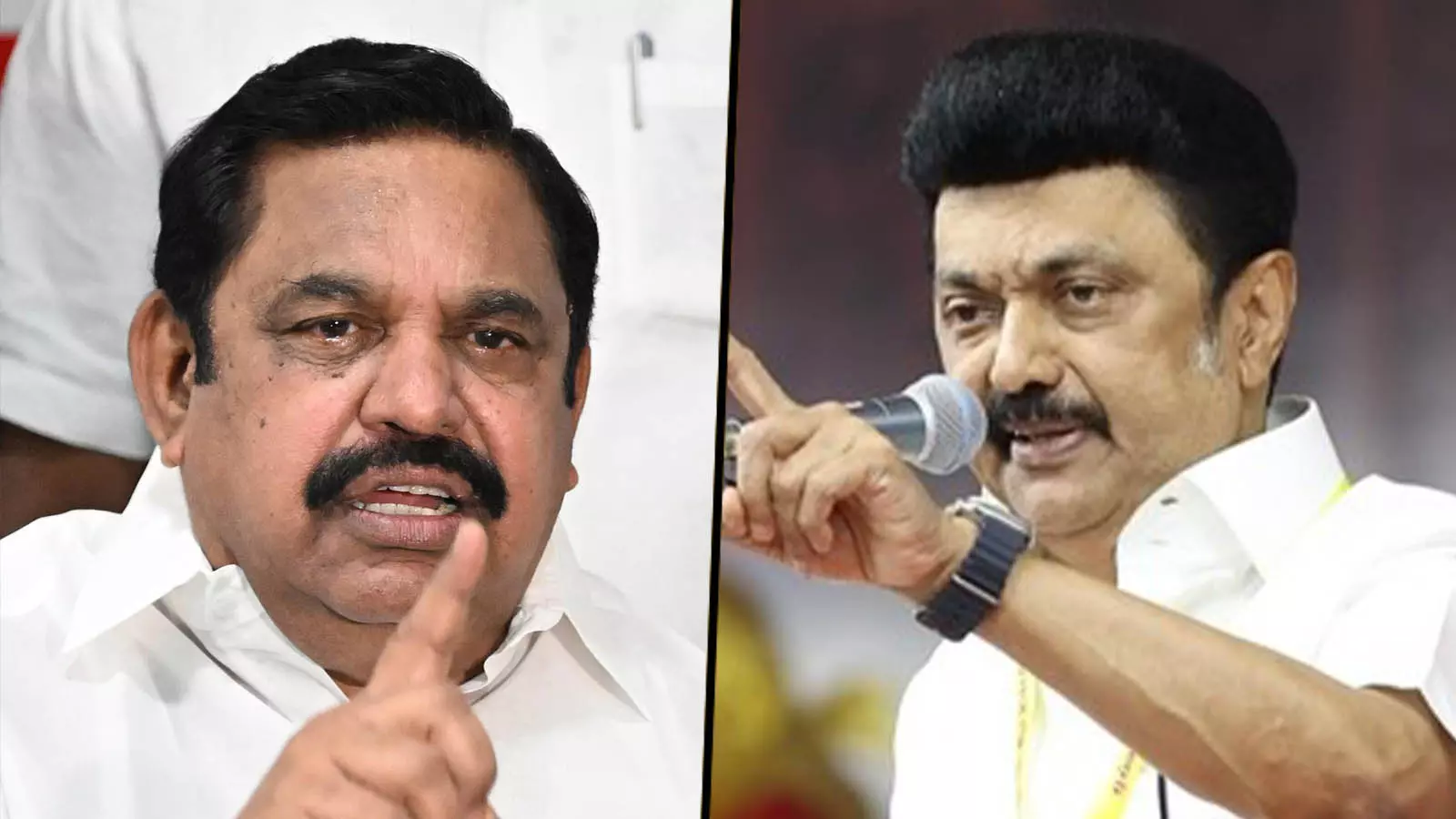
Why is Stalin going to Delhi for NITI Aayog meet? EPS wants to know
Stalin has steadfastly refused to attend such meetings earlier as a mark of protest over the Centre's alleged neglect of Tamil Nadu

A fresh political clash has erupted in Tamil Nadu as AIADMK leader Edappadi K Palaniswami (EPS) has accused Chief Minister MK Stalin of hypocrisy, as the latter is set to attend a NITI Aayog meeting in Delhi on Saturday (May 24).
EPS claims Stalin’s decision contradicts his earlier stance of boycotting such meetings to protest against the Union government’s alleged neglect of Tamil Nadu, raising questions about what prompted the CM to attend this meet.
On his official X handle, EPS wrote: “Stalin once boasted about boycotting the NITI Aayog meeting, claiming that the Central Government was neglecting Tamil Nadu, but now he is suddenly attending the meeting. He didn’t go when Tamil Nadu people needed him, but now he is going for family’s sake.”
Also Read: TN challenges Centre in SC over education funds
Change of stance?
Stalin had skipped previous meetings to highlight issues like the Centre’s withholding of funds, accusing it of ignoring Tamil Nadu’s needs. Why did Stalin change his stance now, EPS asked, alleging that the former's attendance might be linked to personal issues, such as the ongoing ₹1,000 crore Tasmac liquor scam involving Ratheesh (a close associate of Stalin’s son Udhayanidhi Stalin, referred to as “Thambi”) and DMK MLA Senthil Balaji (sarcastically called “Thyagi”).
Stalin’s earlier decision to skip NITI Aayog meetings was rooted in Tamil Nadu’s ongoing disputes with the Union government.
Earlier today, Tamil Nadu filed a case in the Supreme Court against the Centre for withholding ₹2,291 crore in education funds under the Samagra Shiksha Scheme. Stalin accused the Centre of pressuring the state to adopt the National Education Policy (NEP) 2020, particularly its three-language formula, which includes Hindi — a sensitive issue in Tamil Nadu due to historical opposition to Hindi imposition.
Also Read: TN's Rs 19-crore initiative to enhance students’ proficiency in English, Tamil amid NEP row
Stalin’s boycott was a symbolic protest to demand fair treatment for Tamil Nadu, aligning with the DMK’s history of opposing the BJP-led Union government, often marked by gestures like showing black flags to central BJP leaders.
Financial rights
Stalin confirmed his attendance at the NITI Aayog meeting in a statement, saying, “I am going to the NITI Aayog meeting to fight for Tamil Nadu’s fair financial rights.”
Countering EPS's statement, he said: “I am going to Delhi on the 24th May to express Tamil Nadu’s rightful financial demands at the NITI Aayog meeting. From Sasikala to Amit Shah, even if the person changes, the habit of secretly bowing down under the table hasn’t changed for opposition leader Palaniswami — why does this hurt him?"
Also Read: CMs who skipped NITI Aayog meet did injustice to their people: Piyush Goyal
Several reasons are given for the sudden change in Stalin's stand:
SC case and financial pressure: Tamil Nadu’s SC case against the Centre, filed on May 21, underscores the state’s urgent need for funds. The state is demanding the release of ₹2,291 crore in education funds. Stalin likely sees the NITI Aayog meeting as a crucial platform to directly address these financial disputes and advocate for Tamil Nadu’s rights, especially with the issue now escalated to the Supreme Court.
Pragmatic governance needs: Reports say the DMK has adopted a “cordial relationship” with the Centre to ensure smoother governance, even without an electoral alliance. Stalin’s attendance could be a strategic move to maintain this pragmatic relationship, securing funds and avoiding further conflicts, especially amidst pressure from alliance partners like the CPI(M) over issues like the Samsung workers’ protest in Sriperumbudur in 2024.
Countering criticism: By attending the meeting, Stalin aims to counter criticism that his boycott strategy is obstructing Tamil Nadu’s access to resources. His statement about “fighting for Tamil Nadu’s rights” positions him as a proactive leader engaging with the centre to secure the state’s interests, rather than one who only protests.

